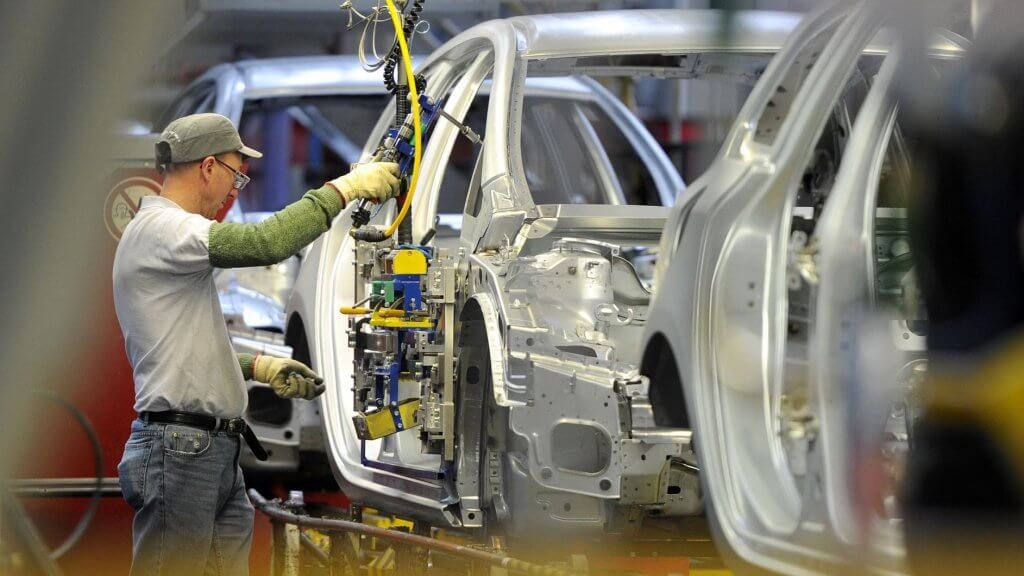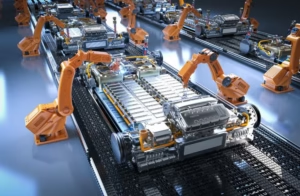Today, Make in India is not just a government initiative; it’s a rallying cry for innovation, entrepreneurship, and self-reliance. It has created a fertile environment for manufacturing startups to thrive, scale, and compete globally.
This transformation didn’t happen overnight, it’s the result of policy reforms, technological advancements, and a new generation of entrepreneurs who see manufacturing not as a legacy industry but as a playground for innovation.
The Early Years: Building the Foundations of Indian Manufacturing
In the post-independence era, India’s manufacturing sector was primarily government-driven. Heavy industries like steel, cement, and machinery received significant state investment. The focus was on import substitution, producing domestically what the country had been importing for decades.
While these early efforts built the foundation, they also came with challenges: limited private participation, slow technology adoption, and low global competitiveness. However, the 1991 economic liberalization marked a turning point. Private players began to enter, foreign investments flowed in, and global best practices started influencing Indian manufacturing.
The Turning Point: Make in India and a New Manufacturing Mindset
Launched in 2014, Make in India shifted the narrative from dependency to self-reliance. It aimed to position India as a global manufacturing hub by promoting ease of doing business, attracting foreign direct investment (FDI), and encouraging domestic production across sectors.
For manufacturing startups, Make in India has opened doors in three ways:
- Policy Push – Simplified regulations, lower compliance burdens, and production-linked incentives (PLIs) have made it easier to start and scale manufacturing units.
- Infrastructure Growth – Development of industrial corridors, logistics hubs, and special economic zones (SEZs) ensures that manufacturing isn’t limited to traditional clusters.
- Technology Adoption – The integration of Industry 4.0, IoT, and automation is leveling the playing field for smaller manufacturers to compete with larger players.
On-Demand Manufacturing: The New Frontier
The modern manufacturing landscape is no longer about bulk production for stockpiles; it’s about customization, agility, and speed. On-demand manufacturing, producing goods only when they are needed, reduces waste, shortens lead times, and minimizes inventory costs.
This model perfectly aligns with Make in India’s vision, as it allows Indian manufacturers to respond quickly to market shifts, serve niche demands, and reduce import dependency.
Startups in the manufacturing sector are increasingly adopting this approach, often supported by digital platforms that connect them with clients globally.
Why Startups Are the Game-Changers in Manufacturing
Unlike traditional manufacturing giants, startups are nimble, innovative, and open to experimenting with new business models. They focus on:
- Low-volume, high-precision production
- Prototyping for R&D and product development
- Integration with e-commerce and global supply chains
- Use of sustainable materials and eco-friendly processes
This agility makes them essential players in India’s journey toward becoming a global manufacturing powerhouse.
Make in India’s Role in Supporting Startups
The Make in India initiative has brought tangible benefits to startups:
- Access to Funding – Through government schemes, venture capital interest, and private equity investments in manufacturing.
- Skill Development – Initiatives like Skill India are creating a workforce ready for advanced manufacturing.
- Global Exposure – Trade shows, export incentives, and global partnerships are opening international markets.
This ecosystem ensures that startups not only survive but thrive in a competitive global environment.
The Rise of Smart Manufacturing in India
Smart manufacturing, combining robotics, AI, data analytics, and IoT, is no longer limited to multinational corporations. Startups in India are building modular automation systems, AI-based quality control, and predictive maintenance tools that are cost-effective and scalable.
This democratization of technology is helping smaller players produce world-class products without massive capital investments.
Case in Point: How Startups Are Competing Globally
From 3D-printed medical devices to precision automotive components, Indian startups are winning contracts against established foreign competitors. The combination of skilled talent, cost advantage, and innovation is proving to be a winning formula.
These companies are not just supplying domestically; they are exporting to markets like the US, Europe, and Southeast Asia, strengthening India’s position in the global value chain.
The Future of Manufacturing Startups in India
With the government’s continued focus on manufacturing, rising consumer demand, and rapid technological adoption, the future looks promising. According to a Deloitte report, India’s manufacturing sector could touch $1 trillion by 2030, with startups contributing significantly to niche segments and high-value manufacturing.
Trends to watch include:
- Hyper-customization – Producing products tailored to individual customer needs.
- Green Manufacturing – Eco-friendly materials and energy-efficient processes.
- Digital Supply Chains – Real-time tracking and AI-based demand forecasting.
Why Mechkonnect is the Reliable Partner for On-Demand Manufacturing
At Mechkonnect, we understand that speed, precision, and trust are the pillars of modern manufacturing. As an on-demand manufacturing partner, we connect businesses with verified manufacturers across sectors, ensuring quality, timely delivery, and cost efficiency.
Our platform-driven approach means clients can access a vast network of manufacturing capabilities, from prototyping to full-scale production, without the operational headaches of managing multiple vendors.
By aligning with the Make in India vision, Mechkonnect is not just a service provider; we are a growth partner for businesses looking to scale their manufacturing with confidence.
Conclusion: From Independence to Global Competitiveness
In just over seven decades, India has moved from being a manufacturing underdog to a serious global contender. The Make in India initiative has provided the momentum, but it’s the startups, innovators, and on-demand manufacturing platforms like Mechkonnect that are driving the change.
As we look ahead, the convergence of policy support, technology, and entrepreneurial spirit will define India’s manufacturing success story, a story where every product made here speaks of innovation, quality, and self-reliance.




